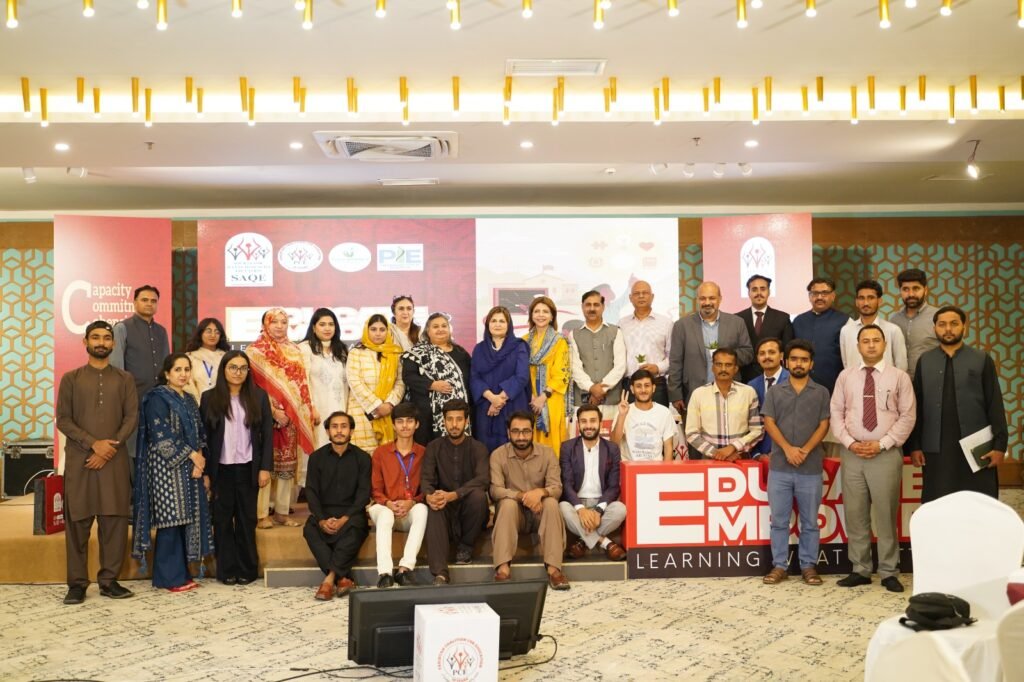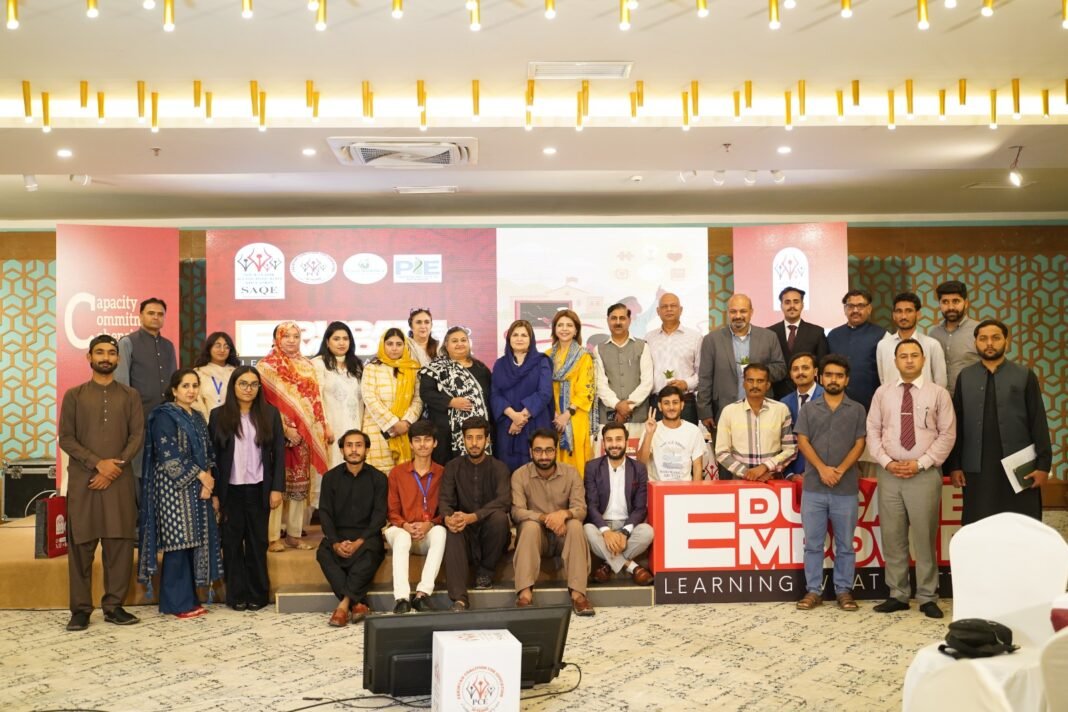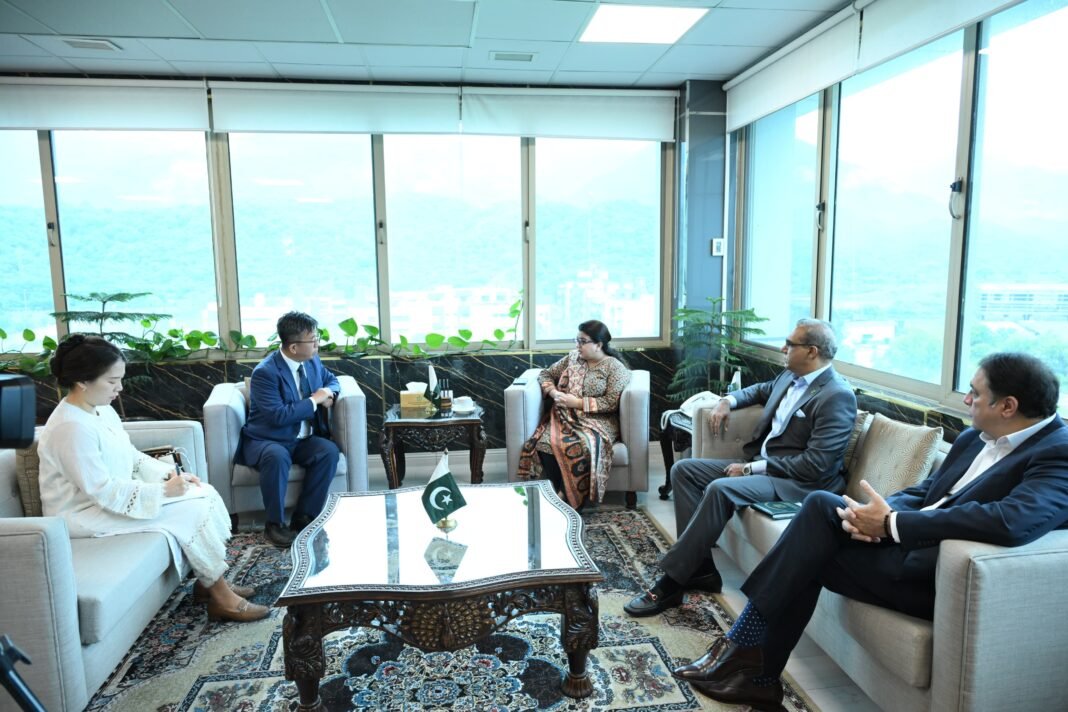
National Education Conference 2025 Kickstarts in Islamabad to Reimagine Learning and Skills Development
Islamabad : –Farah Naz Akbar, Parliamentary Secretary for Education and Chief Guest at the National Education Conference, said that education transformation based on skills and a learner-centric model is not a choice—it is a national necessity, and it begins with stronger public commitment and youth inclusion in education policies and planning.
The first day of the “National Education Conference: Educate to Empower – Learning What Matters” commenced, gathering a diverse array of national education experts, policymakers, youth leaders, and development professionals to explore solutions for transforming Pakistan’s education landscape. The conference was hosted by the Society for Access to Quality Education (SAQE) and Pakistan Coalition for Education (PCE), in collaboration with the Prime Minister Youth Programme (PMYP) and Pakistan Institute of Education (PIE).
Zehra Arshad, Executive Director of SAQE and National Coordinator of PCE, emphasized, “To truly transform education, we must shift from an exam-centric system to one that equips learners with relevant, future-focused skills, enabling active and meaningful participation in the economy. This transformation requires empowering schools and local actors through decentralized decision-making, backed by adequate financial and technical support, to ensure solutions are responsive to local contexts. At the same time, learning systems must be intentionally designed to prioritize inclusion—addressing the needs of marginalized groups, especially girls, children with disabilities, and rural learners—through equitable infrastructure, strengthened teacher capacity, and targeted interventions that leave no learner behind.
Delivering a keynote address, Dr. Faisal Bari, Vice Chancellor of the National Institute of Technology and Member of the Prime Minister’s Education Emergency Taskforce, stressed, “To prepare learners for the future, we must integrate content, delivery, foundational learning, and applied knowledge as a unified continuum. The bias that limits skill-based education to low- and middle-income groups must be dismantled—skills are a universal pathway to dignity and opportunity.” He further said that while infrastructure gaps persist, the real need is to shift to learning-centric, outcomes-driven systems. Foundational learning in early years must build strong cognitive and digital capacities that evolve into applied skills.
Dr Shahid Soroya, Director General, PIE, said that evidence generated by PIE underscores that the education emergency extends beyond access to schools. While over 25 million remain out of school, those enrolled often face a deep learning crisis, where classrooms fail to deliver meaningful, future-relevant education. This dual challenge of limited participation and a widening skills gap reinforces existing inequities, particularly for marginalized groups, and calls for urgent, systemic transformation centered on inclusive and equitable learning for all.
Abid Gill, Deputy Chief Advisor, Advancing Quality Alternative Learning (AQAL), JICA, urging for an adaptive and flexible education system, said, “Decentralizing and localizing education governance is key to meeting diverse local needs. Education reform must move beyond cost debates to focus on localized, learning-centric solutions.” He added that education and skills must go hand in hand—reflecting economic struggles, shifting family attitudes, and the growing demand for skills tied to human capital export.
2.5 million youth entering the job market annually, and industrial growth declining by 15% over the past five years, there is an urgent need to align education with labor market demands. TVET currently contributes to 45% of employment, underscoring the need to invest more in and elevate TVET as a key pillar of economic resilience and youth employment.
Sohail Majeed is a Special Correspondent at The Diplomatic Insight. He has twelve plus years of experience in journalism & reporting. He covers International Affairs, Diplomacy, UN, Sports, Climate Change, Economy, Technology, and Health.






![logo-1[1]](https://globalnewspakistan.com/wp-content/uploads/2025/01/logo-11-e1737618310315-300x187.png)